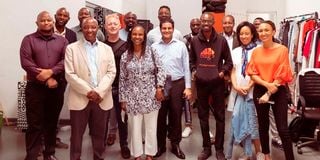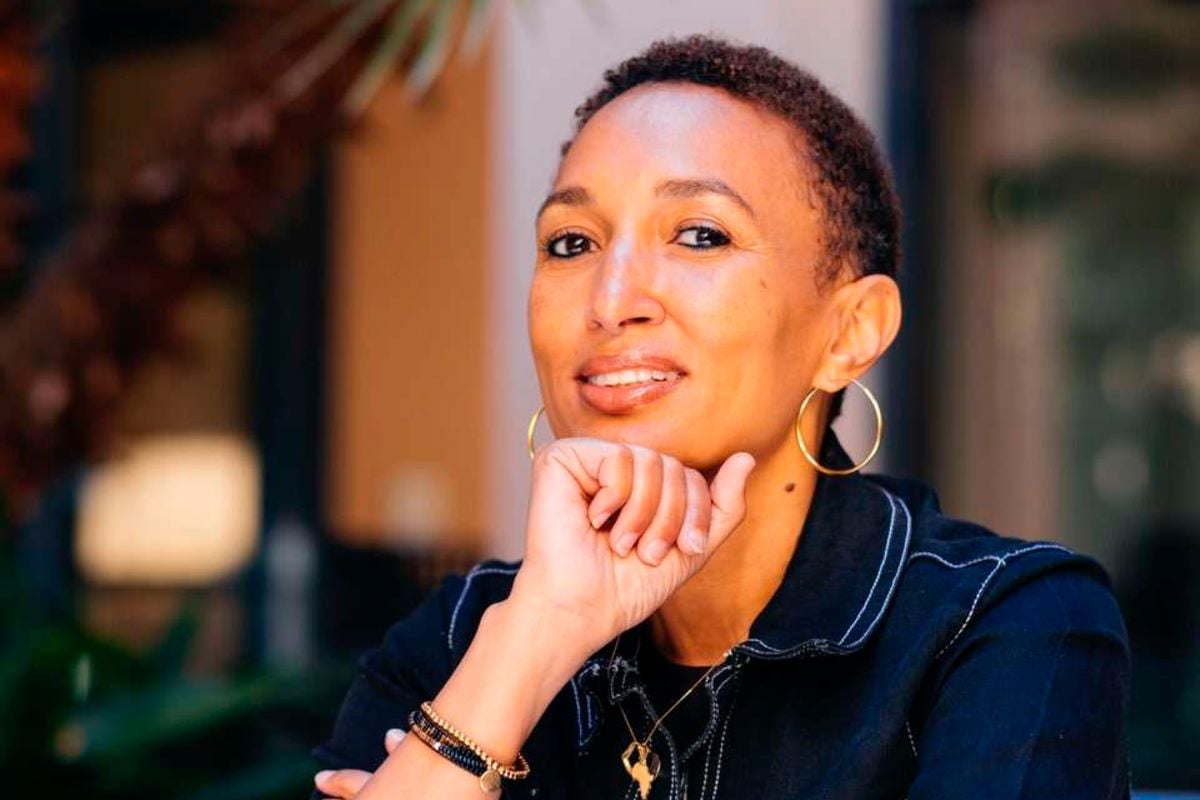[ad_1]
In December 2017, Wandia Gichuru, the founding father of Vivo Style Group and Store Zetu, joined the Endeavor excessive affect entrepreneurship programme as the primary feminine entrepreneur from Kenya.
Over a six-month evaluation interval, she would work together with entrepreneurs whose companies have been at a extra superior stage than hers, evaluating notes on what methods she might pursue to take her enterprise to the subsequent degree.
“I met and spoke to over 60 entrepreneurs and enterprise folks from throughout the globe. I’d share our technique and plans and they might give me suggestions and recommendation. This actually helped us to refine and enhance our marketing strategy,” stated Wandia throughout an interview with Powering SMEs.
Six years later, the Vivo Style Group owns 25 shops in Kenya, Uganda and Rwanda. General, the group employs over 450 folks, of which greater than 70 per cent are girls and youth below the age of 30.
The agency additionally has a web based promoting platform generally known as Store Zetu, the place customers can buy from a number of manufacturers without delay, paying one delivery charge, and receiving gadgets in a single order. It at the moment carries over 350 manufacturers, most of that are native.
Earlier than it grew to this degree, the enterprise was working as a small trend model from the Junction Mall in Nairobi below the title Vivo Girl. Again in 2011, Wandia began importing health and dance clothes for girls.
“I needed to encourage girls to steer extra lively and wholesome lives, however rapidly expanded the model’s choices to incorporate common sensible informal and informal clothes, concentrating on skilled girls aged 35 years and older,” famous Wandia.
The one downside with coping with imported merchandise was that the majority international trend manufacturers designed for a really euro-centric physique form, dimension and pores and skin tones.
Native clients needed silhouettes that complimented their physique shapes, others needed outfits with vibrant colors and loud prints. Subsequently, in 2013, she determined to start out designing and manufacturing regionally.
“For me, that was crucial and thrilling change to our enterprise mannequin. On the time, most native garment producers have been targeted on producing uniforms and company attire,” famous Wandia.
Shortly after transitioning, the enterprise began to develop, however Wandia was not absolutely ready for this. Making a administration construction to help the expansion proved to be a problem.

The Endeavor community throughout a go to to the Vivo Style Group manufacturing unit.
Picture credit score: Pool
“Because the founder, I used to be not in a position to handle all processes myself and we suffered from weaknesses and gaps in our system. Right this moment, though we nonetheless face challenges in creating buildings and processes to help the inspiration of the enterprise, we’re in a a lot stronger place to scale,” famous Wandia.
By means of the endeavor programme, she acquired recommendation from mentors on the right way to successfully handle the enterprise.
A few of these mentors have continued to supply her recommendation on the right way to handle the results of exterior shocks to her enterprise, such because the weakening of the shilling.
All their revenues are in native forex; subsequently, it turns into costly for them to supply uncooked materials in arduous forex.
“Endeavor has walked intently with us on our business trip, together with via the powerful Covid-19 interval, the place they helped us pivot our enterprise in direction of promoting on-line and introducing a B2B enterprise line. We now wish to develop the export facet of our enterprise,” Wandia stated.
Teaching and growth programmes reminiscent of Endeavor play a vital position in accelerating the expansion of small and medium sized enterprises throughout essential phases.
Not solely do they provide entry to potential buyers, but in addition present companies with mentorship alternatives from skilled entrepreneurs, buyers, and trade veterans.
“To achieve success as an entrepreneur, you want a robust community of buyers who will help you elevate cash, a community of mentors who can information you thru the entrepreneurial journey and a community of key stakeholders with authorities connections,” says Benjamin Njenga, co-founder of Apollo Agriculture.
Apollo joined the Endeavor programme at a time when the corporate was increasing its operations into Zambia. The agency, which facilitates smallholder farmers with entry to inputs, agro-training and insurance coverage, had recognized Zambia as an excellent market to develop their enterprise.
“In Kenya, our main season is often January to April when we now have lengthy rains. The issue was we have been producing income the primary a part of the 12 months solely. After we have been increasing, we needed to see which nation could be an offset.The season in Zambia is often in October so we might be capable to do two main seasons in a 12 months,” stated Njenga.
They might leverage Endeavor’s networks in Zambia to navigate the federal government laws in addition to get companions to work with.
Out of over 300,000 farmers they assisted financially final 12 months, 100, 000 have been from Zambia. The 200, 000 from Kenya had a mortgage portfolio of about Sh3.7 billion.
“At instances farmers can’t entry merchandise reminiscent of loans from banks, not as a result of there aren’t any amenities, however as a result of the farmers are very arduous to achieve, even rural distribution of inputs is a problem due to poor provide chain networks. We leverage satellite tv for pc imagery, machine studying and cellular cash to ship merchandise to small holder farmers,” famous Njenga.
Like Apollo, one more firm, Copia joined the Endeavor programme at a essential stage once they wanted help to increase their operations.
The e-commerce agency had recognized a spot the place customers, particularly these dwelling in rural Kenya, couldn’t get entry to well-priced, top-quality, reliably delivered services.
“This was primarily as a result of they might not entry the web or the price of supply was too excessive. We needed to construct a enterprise that may carry ecommerce to that beforehand unserved shopper, which represents the majority of the customers in Kenya who can’t entry fashionable commerce supermarkets,” famous Tim Metal, CEO of Copia.
Filling this hole wasn’t going to be low cost, subsequently about 5 years in the past, one among their buyers launched them to the Endeavor programme.
“We have been fortunate to obtain an funding from the Endeavor Catalyst Fund, which invests in companies that they imagine can have a big affect on societies wherein they function,” famous Tim.
Right this moment, Copia handles greater than one million orders a month from over half one million clients throughout Kenya. 70 per cent of the deliveries are off-road.
The agency employs round 1,400 folks, round 800 drivers and driver assistants, and 50, 000 brokers, 81 per cent of whom are girls.
“Most of our brokers are recruited from the small companies and even people within the places the place we wish to lengthen the Copia service to customers. Generally, our brokers are hair dressers, tailors, cellular cash brokers, café and resort house owners. They can improve their earnings by doubling as our brokers,” famous Tim.
[ad_2]




